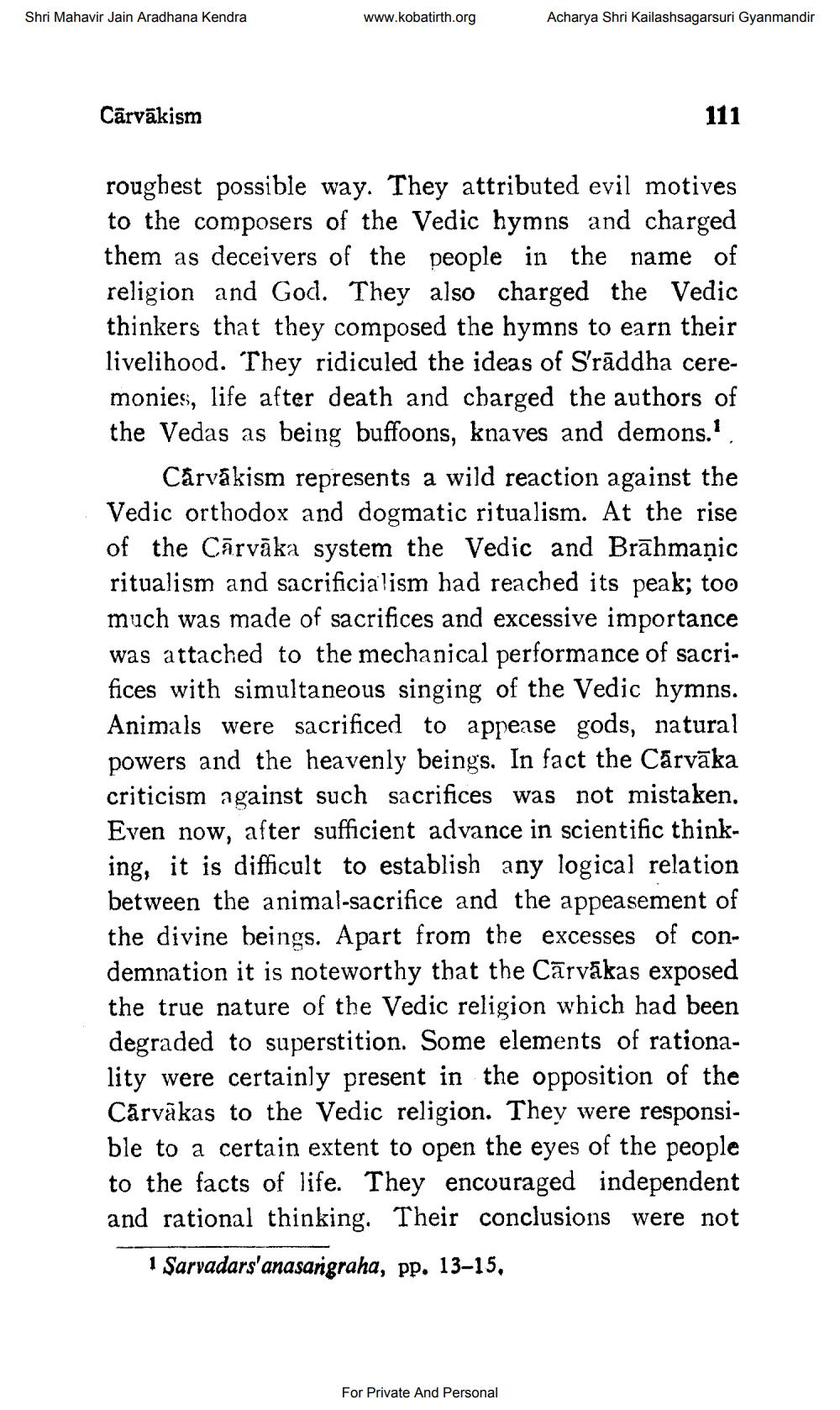________________
Shri Mahavir Jain Aradhana Kendra
www.kobatirth.org
Acharya Shri Kailashsagarsuri Gyanmandir
Cārvākism
111
roughest possible way. They attributed evil motives to the composers of the Vedic hymns and charged them as deceivers of the people in the name of religion and God. They also charged the Vedic thinkers that they composed the hymns to earn their livelihood. They ridiculed the ideas of S'rāddha ceremonies, life after death and charged the authors of the Vedas as being buffoons, knaves and demons.",
Cárvákism represents a wild reaction against the Vedic orthodox and dogmatic ritualism. At the rise of the Cārvāka system the Vedic and Brāhmaṇic ritualism and sacrificialism had reached its peak; too much was made of sacrifices and excessive importance was attached to the mechanical performance of sacri. fices with simultaneous singing of the Vedic hymns. Animals were sacrificed to appease gods, natural powers and the heavenly beings. In fact the Cārvāka criticism against such sacrifices was not mistaken. Even now, after sufficient advance in scientific thinking, it is difficult to establish any logical relation between the animal-sacrifice and the appeasement of the divine beings. Apart from the excesses of condemnation it is noteworthy that the Cārvākas exposed the true nature of the Vedic religion which had been degraded to superstition. Some elements of rationality were certainly present in the opposition of the Cārvākas to the Vedic religion. They were responsible to a certain extent to open the eyes of the people to the facts of life. They encouraged independent and rational thinking. Their conclusions were not
1 Sarvadars'anasangraha, pp. 13-15,
For Private And Personal




